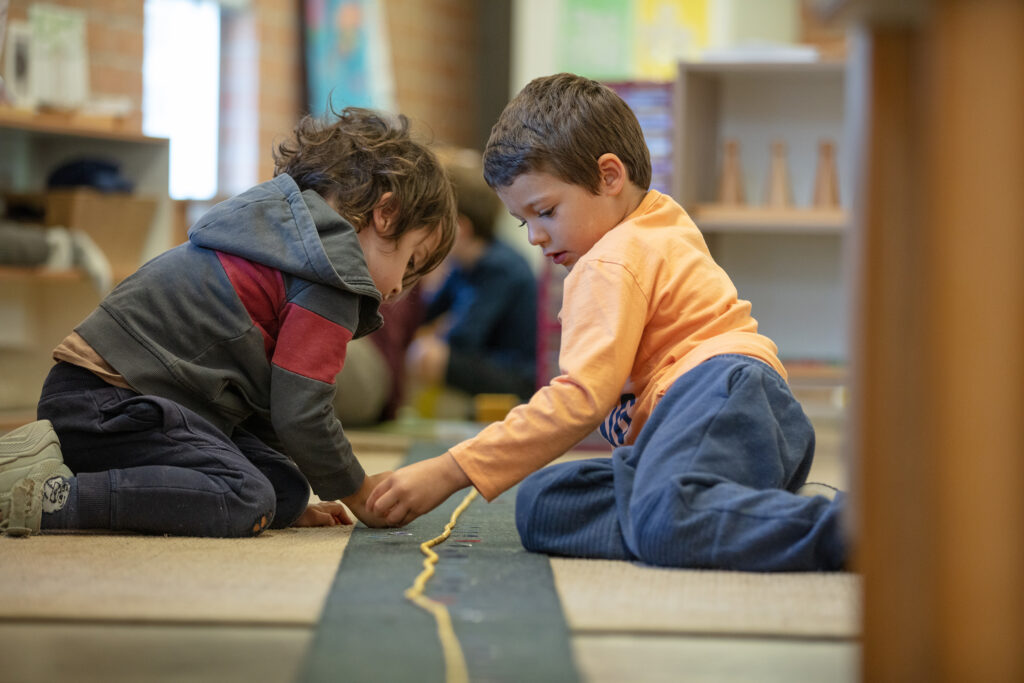In a Montessori environment, the structure of our day plays a huge role in the success children feel in engaging in learning. The morning work cycle is fundamental to all that we do. For children the flow of this is important. There is a clearly observable pattern as a work cycle progresses. The beginning will be the busiest and most noisy…this is a time when friends are excited to see each other, they share stories, and catch up. This noise and excitement occurring at the start of the day isn’t a bad thing, or unusual, but it wouldn’t be ideal if this dynamic continued throughout the morning.
However, those first few minutes quickly evolve into calm, focused activity, and purposeful, polite communication. During this first period of the work cycle, children tend to choose work and activities that they are familiar with. This supports children in mentally ‘switching on’ and can aid a sense of self-confidence through independent achievement, feeling empowered, competent, and ready for the challenges that lie ahead.
After the initial series of tasks, the class might experience a briefly unsettled period, referred to as ‘false fatigue’. Children become less focused, may wander around the room, and maybe chat with some friends rather than choosing further tasks; the energy in the room will feel less productive. It’s referred to as ‘false fatigue’ for a reason… it’s a temporary moment before the most engaging and great work of the day takes place. Afterward, children settle back into purposeful work, usually that which involves long, extended processes and cognitive stimulation. This might be where Guides present lessons that require a child to feel confident in facing a challenge and to be ready to focus for a prolonged period of concentration.
As this period draws to a close, children begin to place materials back on shelves and look for a way to wind down from intellectual activity. Each stage of the work cycle is important, and it’s important that children experience them together.
If a child arrives after a work cycle has commenced, it can mean they miss the social component, and this can interrupt others deep in concentration as they arrive. It can also be challenging sometimes to integrate into a room in which the work cycle is underway. So we encourage parents to battle the elements of traffic, children, a busy car park – and everything life throws at you, and do their best to arrive on time so that our children commence their morning work cycle together and we can be our most effective in supporting and nurturing their development.
